Tandy Constantly Flirting With Tyrone And Him Being Exasperated But Pleased
Tandy constantly flirting with Tyrone and him being exasperated but pleased

More Posts from Nefaralous and Others


♡

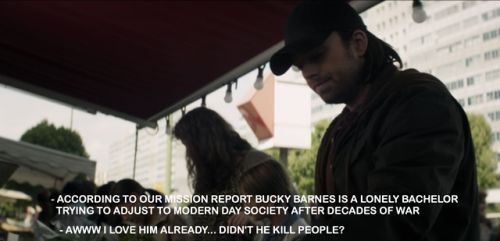
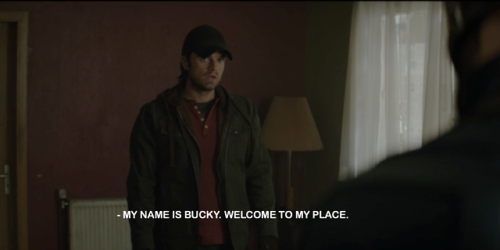
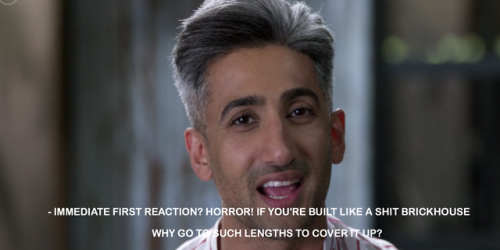
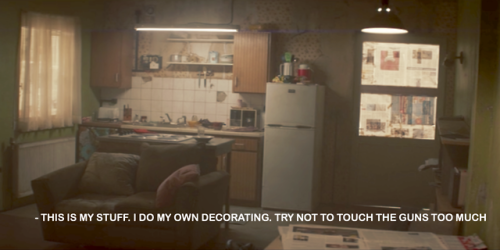

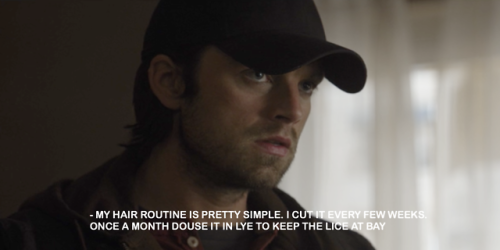
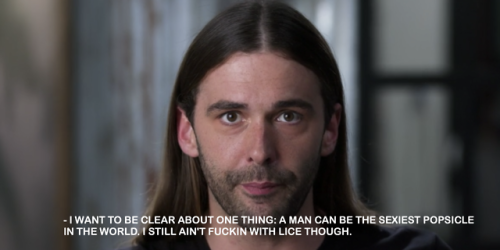
and the end result:

bonus:

🌸Describing Scents For Writers 🌸| List of Scents
Describing aromas can add a whole new layer to your storytelling, immersing your readers in the atmosphere of your scenes. Here's a categorized list of different words to help you describe scents in your writing.
🌿 Fresh & Clean Scents
Crisp
Clean
Pure
Refreshing
Invigorating
Bright
Zesty
Airy
Dewy
Herbal
Minty
Oceanic
Morning breeze
Green grass
Rain-kissed
🌼 Floral Scents
Fragrant
Sweet
Floral
Delicate
Perfumed
Lush
Blooming
Petaled
Jasmine
Rose-scented
Lavender
Hibiscus
Gardenia
Lilac
Wildflower
🍏 Fruity Scents
Juicy
Tangy
Sweet
Citrusy
Tropical
Ripe
Pungent
Tart
Berry-like
Melon-scented
Apple-blossom
Peachy
Grape-like
Banana-esque
Citrus burst
🍂 Earthy & Woody Scents
Musky
Earthy
Woody
Grounded
Rich
Smoky
Resinous
Pine-scented
Oak-like
Cedarwood
Amber
Mossy
Soil-rich
Sandalwood
Forest floor
☕ Spicy & Warm Scents
Spiced
Warm
Cozy
Inviting
Cinnamon-like
Clove-scented
Nutmeg
Ginger
Cardamom
Coffee-infused
Chocolatey
Vanilla-sweet
Toasted
Roasted
Hearth-like
🏭 Industrial & Chemical Scents
Metallic
Oily
Chemical
Synthetic
Acrid
Pungent
Foul
Musty
Smoky
Rubber-like
Diesel-scented
Gasoline
Paint-thinner
Industrial
Sharp
🍃 Natural & Herbal Scents
Herbal
Aromatic
Earthy
Leafy
Grass-like
Sage-scented
Basil-like
Thyme-infused
Rosemary
Chamomile
Green tea
Wild mint
Eucalyptus
Cinnamon-bark
Clary sage
🎉 Unique & Uncommon Scents
Antique
Nostalgic
Ethereal
Enigmatic
Exotic
Haunted
Mysterious
Eerie
Poignant
Dreamlike
Surreal
Enveloping
Mesmerizing
Captivating
Transcendent
I hope this list can help you with your writing. 🌷✨
Feel free to share your favorite scent descriptions in the replies below! What scents do you love to incorporate into your stories?
Happy Writing! - Rin T.
How I learned to write smarter, not harder
(aka, how to write when you're hella ADHD lol)
A reader commented on my current long fic asking how I write so well. I replied with an essay of my honestly pretty non-standard writing advice (that they probably didn't actually want lol) Now I'm gonna share it with you guys and hopefully there's a few of you out there who will benefit from my past mistakes and find some useful advice in here. XD Since I started doing this stuff, which are all pretty easy changes to absorb into your process if you want to try them, I now almost never get writer's block.
The text of the original reply is indented, and I've added some additional commentary to expand upon and clarify some of the concepts.
As for writing well, I usually attribute it to the fact that I spent roughly four years in my late teens/early 20s writing text roleplay with a friend for hours every single day. Aside from the constant practice that provided, having a live audience immediately reacting to everything I wrote made me think a lot about how to make as many sentences as possible have maximum impact so that I could get that kind of fun reaction. (Which is another reason why comments like yours are so valuable to fanfic writers! <3) The other factors that have improved my writing are thus: 1. Writing nonlinearly. I used to write a whole story in order, from the first sentence onward. If there was a part I was excited to write, I slogged through everything to get there, thinking that it would be my reward once I finished everything that led up to that. It never worked. XD It was miserable. By the time I got to the part I wanted to write, I had beaten the scene to death in my head imagining all the ways I could write it, and it a) no longer interested me and b) could not live up to my expectations because I couldn't remember all my ideas I'd had for writing it. The scene came out mediocre and so did everything leading up to it. Since then, I learned through working on VN writing (I co-own a game studio and we have some visual novels that I write for) that I don't have to write linearly. If I'm inspired to write a scene, I just write it immediately. It usually comes out pretty good even in a first draft! But then I also have it for if I get more ideas for that scene later, and I can just edit them in. The scenes come out MUCH stronger because of this. And you know what else I discovered? Those scenes I slogged through before weren't scenes I had no inspiration for, I just didn't have any inspiration for them in that moment! I can't tell you how many times there was a scene I had no interest in writing, and then a week later I'd get struck by the perfect inspiration for it! Those are scenes I would have done a very mediocre job on, and now they can be some of the most powerful scenes because I gave them time to marinate. Inspiration isn't always linear, so writing doesn't have to be either!
Some people are the type that joyfully write linearly. I have a friend like this--she picks up the characters and just continues playing out the next scene. Her story progresses through the entire day-by-day lives of the characters; it never timeskips more than a few hours. She started writing and posting just eight months ago, she's about an eighth of the way through her planned fic timeline, and the content she has so far posted to AO3 for it is already 450,000 words long. But most of us are normal humans. We're not, for the most part, wired to create linearly. We consume linearly, we experience linearly, so we assume we must also create linearly. But actually, a lot of us really suffer from trying to force ourselves to create this way, and we might not even realize it. If you're the kind of person who thinks you need to carrot-on-a-stick yourself into writing by saving the fun part for when you finally write everything that happens before it: Stop. You're probably not a linear writer. You're making yourself suffer for no reason and your writing is probably suffering for it. At least give nonlinear writing a try before you assume you can't write if you're not baiting or forcing yourself into it!! Remember: Writing is fun. You do this because it's fun, because it's your hobby. If you're miserable 80% of the time you're doing it, you're probably doing it wrong!
2. Rereading my own work. I used to hate reading my own work. I wouldn't even edit it usually. I would write it and slap it online and try not to look at it again. XD Writing nonlinearly forced me to start rereading because I needed to make sure scenes connected together naturally and it also made it easier to get into the headspace of the story to keep writing and fill in the blanks and get new inspiration. Doing this built the editing process into my writing process--I would read a scene to get back in the headspace, dislike what I had written, and just clean it up on the fly. I still never ever sit down to 'edit' my work. I just reread it to prep for writing and it ends up editing itself. Many many scenes in this fic I have read probably a dozen times or more! (And now, I can actually reread my own work for enjoyment!) Another thing I found from doing this that it became easy to see patterns and themes in my work and strengthen them. Foreshadowing became easy. Setting up for jokes or plot points became easy. I didn't have to plan out my story in advance or write an outline, because the scenes themselves because a sort of living outline on their own. (Yes, despite all the foreshadowing and recurring thematic elements and secret hidden meanings sprinkled throughout this story, it actually never had an outline or a plan for any of that. It's all a natural byproduct of writing nonlinearly and rereading.)
Unpopular writing opinion time: You don't need to make a detailed outline.
Some people thrive on having an outline and planning out every detail before they sit down to write. But I know for a lot of us, we don't know how to write an outline or how to use it once we've written it. The idea of making one is daunting, and the advice that it's the only way to write or beat writer's block is demoralizing. So let me explain how I approach "outlining" which isn't really outlining at all.
I write in a Notion table, where every scene is a separate table entry and the scene is written in the page inside that entry. I do this because it makes writing nonlinearly VASTLY more intuitive and straightforward than writing in a single document. (If you're familiar with Notion, this probably makes perfect sense to you. If you're not, imagine something a little like a more contained Google Sheets, but every row has a title cell that opens into a unique Google Doc when you click on it. And it's not as slow and clunky as the Google suite lol) (Edit from the future: I answered an ask with more explanation on how I use Notion for non-linear writing here.) When I sit down to begin a new fic idea, I make a quick entry in the table for every scene I already know I'll want or need, with the entries titled with a couple words or a sentence that describes what will be in that scene so I'll remember it later. Basically, it's the most absolute bare-bones skeleton of what I vaguely know will probably happen in the story.
Then I start writing, wherever I want in the list. As I write, ideas for new scenes and new connections and themes will emerge over time, and I'll just slot them in between the original entries wherever they naturally fit, rearranging as necessary, so that I won't forget about them later when I'm ready to write them. As an example, my current long fic started with a list of roughly 35 scenes that I knew I wanted or needed, for a fic that will probably be around 100k words (which I didn't know at the time haha). As of this writing, it has expanded to 129 scenes. And since I write them directly in the page entries for the table, the fic is actually its own outline, without any additional effort on my part. As I said in the comment reply--a living outline!
This also made it easier to let go of the notion that I had to write something exactly right the first time. (People always say you should do this, but how many of us do? It's harder than it sounds! I didn't want to commit to editing later! I didn't want to reread my work! XD) I know I'm going to edit it naturally anyway, so I can feel okay giving myself permission to just write it approximately right and I can fix it later. And what I found from that was that sometimes what I believed was kind of meh when I wrote it was actually totally fine when I read it later! Sometimes the internal critic is actually wrong. 3. Marinating in the headspace of the story. For the first two months I worked on [fic], I did not consume any media other than [fandom the fic is in]. I didn't watch, read, or play anything else. Not even mobile games. (And there wasn't really much fan content for [fandom] to consume either. Still isn't, really. XD) This basically forced me to treat writing my story as my only source of entertainment, and kept me from getting distracted or inspired to write other ideas and abandon this one.
As an aside, I don't think this is a necessary step for writing, but if you really want to be productive in a short burst, I do highly recommend going on a media consumption hiatus. Not forever, obviously! Consuming media is a valuable tool for new inspiration, and reading other's work (both good and bad, as long as you think critically to identify the differences!) is an invaluable resource for improving your writing.
When I write, I usually lay down, close my eyes, and play the scene I'm interested in writing in my head. I even take a ten-minute nap now and then during this process. (I find being in a state of partial drowsiness, but not outright sleepiness, makes writing easier and better. Sleep helps the brain process and make connections!) Then I roll over to the laptop next to me and type up whatever I felt like worked for the scene. This may mean I write half a sentence at a time between intervals of closed-eye-time XD
People always say if you're stuck, you need to outline.
What they actually mean by that (whether they realize it or not) is that if you're stuck, you need to brainstorm. You need to marinate. You don't need to plan what you're doing, you just need to give yourself time to think about it!
What's another framing for brainstorming for your fic? Fantasizing about it! Planning is work, but fantasizing isn't.
You're already fantasizing about it, right? That's why you're writing it. Just direct that effort toward the scenes you're trying to write next! Close your eyes, lay back, and fantasize what the characters do and how they react.
And then quickly note down your inspirations so you don't forget, haha.
And if a scene is so boring to you that even fantasizing about it sucks--it's probably a bad scene.
If it's boring to write, it's going to be boring to read. Ask yourself why you wanted that scene. Is it even necessary? Can you cut it? Can you replace it with a different scene that serves the same purpose but approaches the problem from a different angle? If you can't remove the troublesome scene, what can you change about it that would make it interesting or exciting for you to write?
And I can't write sitting up to save my damn life. It's like my brain just stops working if I have to sit in a chair and stare at a computer screen. I need to be able to lie down, even if I don't use it! Talking walks and swinging in a hammock are also fantastic places to get scene ideas worked out, because the rhythmic motion also helps our brain process. It's just a little harder to work on a laptop in those scenarios. XD
In conclusion: Writing nonlinearly is an amazing tool for kicking writer's block to the curb. There's almost always some scene you'll want to write. If there isn't, you need to re-read or marinate.
Or you need to use the bathroom, eat something, or sleep. XD Seriously, if you're that stuck, assess your current physical condition. You might just be unable to focus because you're uncomfortable and you haven't realized it yet.
Anyway! I hope that was helpful, or at least interesting! XD Sorry again for the text wall. (I think this is the longest comment reply I've ever written!)
And same to you guys on tumblr--I hope this was helpful or at least interesting. XD Reblogs appreciated if so! (Maybe it'll help someone else!)
How to improve your writing style : a 5-steps guide.
Intro : I love the 5-steps format, don’t mind me. Again, this essay is based on my personal experience.
Read in different genres. Ok, I know you’ve probably heard this advice more than you can count but did you ask yourself why it is so important ? You probably wonder ‘‘How reading some historical fiction will help me writing my sci-fi novel ?’’ For that simple reason my friend : they meet different purposes. You don’t know how to describe a castle ? It’s okay, historical fiction got your back. Because it aims at something more realistic and accurate, it would tend to be more specific and detailed when it comes to describing clothes, furniture, places and so on. Why ? Because, most of the time, THEY ACTUALLY EXISTED. Take a closer look at how it is done and draw your inspiration from it (but please avoid plagiarism it’s bad - and illegal)
Take notes and CLASSIFY them. To make reading somehow useful, you have to actually make it concious, which means you have to write things down to remember them. When I come across a description I like, I tend to takes notes of the figures of speech that are used and class them, so when I have to write a similar scene, I have an idea of what have been already used, and weither or not it achieved its goal. I am NOT talking about COPY another author’s style !!!! It’s about finding inspiration and new approaches. I also tend to take notes of the new words I wish to incoporate into my writing. The thesaurus is my new bestie.
Rewrite the same scene from different POVs. First of all, it’s fun. And it’s a really good way to spot quirky formulations. For instance, if you describe a ship, the captain’s POV should be different from that of a simple observer. The first one would be naming each part princisely whereas the other would only be admiring the surface without knowing anything. If the caption is the same for both POVs, maybe you should consider write your passage again (or have a good reason, like a strong amateurism for the mere observer). It’s go hand in hand with coherence - but it would be an essay for another time (maybe).
Read your text aloud. I put major emphasis on that one because it’s as underated as reading books for various genres. You have no idea how much we DON’T speak the way we write. Even dialogues are crafted in our stories - so make sure to give them proper attention. (i even read my email aloud but-). I KNOW how cringey it might be as I am doing it MYSELF but the benefits are worth the 35-minutes shame I endure from my own mess. Before you can shine, you have to polish (shout out to the one who said that first if it’s not me).
Take a step back. I strongly advice you to let some time pass before reading your text again and profreading it. It will cast a new light upon your work and with fresh eyes you’d be more likely able to spot what needs to be erased or rephrased.
That’s all for me today. Since I would be entering my proofreading phase for my writing contest, the next essay would probably about proofreading (with examples from my own novel ?). Unless someone wants me to write on a specific subject first.
Gentle reminder that I’m still French and not a native so please forgive my dubious grammar and outrageous mispellings.
3 tips to writing character flaws
1) make their flaw congruent with the rest of who they are.
There’s a lot of different ways to do this, most commonly I’ve seen the “their strength is their flaw” which you can do but I’d recommend exploring it more deeply.
For example, maybe they’re good at attacking things head on, being honest and straightforward, but because they’ve always relied on that they don’t have the practice or an inclination to rely on other methods such as being more crafty, diplomatic, and subtle which are traits a situation sometimes calls for. I call this the “wrong tool for the job” flaw where an over-reliance on their strength handicaps them in situations where a different approach seems better suited. I think people and characters also just have a habit of using their tool for the job rather than the ‘best’ tool.
2) Don’t just tell us their flaw, show it.
Show this character trait coming out in their actions, have it influence the plot in key moments. If they’re reckless, don’t just have another character call them reckless, have them act reckless in a way that impacts their relationships with other characters or the plot.
3) Screw the whole “strengths vs flaws” thing altogether
try viewing character traits outside of a rigid binary of good and bad that you pull from a deck, and instead derive/connect them to deeper truths about who the character is, (how do they deal with problems/what is their ‘go-to’ method? what do they value? what are they skilled or unskilled at? what do they believe about the world and themselves?) and then why the characters is that way (note that it doesn’t all have to come from trauma. Please don’t attribute everything to a trauma. General life experience informs a lot of beliefs/traits, and then some is also just an inborn inclination) I have a longer post about how I tend to try to build a cohesive layout of who a character is.
Note as always, that these just things that I currently find helpful. Use or discard as works for you and your work. Happy writing!
Honestly? My main piece of advice for writing well-rounded characters is to make them a little bit lame. No real living person is 100% cool and suave 100% of the time. Everyone's a little awkward sometimes, or gets too excited about something goofy, or has a silly fear, or laughs about stupid things. Being a bit of a loser is an incurable part of the human condition. Utilize that in your writing.

Shalom Harlow by Ellen von Unwerth, 1993
you have to let yourself be a weird woman or you will not survive
-
 thesarcasmofshan liked this · 3 years ago
thesarcasmofshan liked this · 3 years ago -
 theozoneswim liked this · 4 years ago
theozoneswim liked this · 4 years ago -
 tarzan737 liked this · 4 years ago
tarzan737 liked this · 4 years ago -
 magicalredunicorn liked this · 4 years ago
magicalredunicorn liked this · 4 years ago -
 dormroomwindow liked this · 4 years ago
dormroomwindow liked this · 4 years ago -
 thrdplce liked this · 4 years ago
thrdplce liked this · 4 years ago -
 l00ney-m00ny liked this · 4 years ago
l00ney-m00ny liked this · 4 years ago -
 xopeggy liked this · 4 years ago
xopeggy liked this · 4 years ago -
 sarcasticbrunettechick liked this · 4 years ago
sarcasticbrunettechick liked this · 4 years ago -
 kaahmeworld-blog liked this · 4 years ago
kaahmeworld-blog liked this · 4 years ago -
 stacia20mass liked this · 4 years ago
stacia20mass liked this · 4 years ago -
 mijulyn liked this · 4 years ago
mijulyn liked this · 4 years ago -
 iseultandtristan liked this · 4 years ago
iseultandtristan liked this · 4 years ago -
 emptysoul95 liked this · 4 years ago
emptysoul95 liked this · 4 years ago -
 georgcfan liked this · 4 years ago
georgcfan liked this · 4 years ago -
 darkskyatnight liked this · 4 years ago
darkskyatnight liked this · 4 years ago -
 capitandanvers liked this · 4 years ago
capitandanvers liked this · 4 years ago -
 littlehappyraven liked this · 5 years ago
littlehappyraven liked this · 5 years ago -
 iamcinnamonbun reblogged this · 5 years ago
iamcinnamonbun reblogged this · 5 years ago -
 chronicallyonlinesimp liked this · 5 years ago
chronicallyonlinesimp liked this · 5 years ago -
 shawna-says liked this · 5 years ago
shawna-says liked this · 5 years ago -
 thecrazyone42 liked this · 5 years ago
thecrazyone42 liked this · 5 years ago -
 chicken--chips reblogged this · 5 years ago
chicken--chips reblogged this · 5 years ago -
 king0thy liked this · 5 years ago
king0thy liked this · 5 years ago -
 bakughoes liked this · 5 years ago
bakughoes liked this · 5 years ago -
 ileanasmile liked this · 5 years ago
ileanasmile liked this · 5 years ago -
 scarlettsoldier reblogged this · 5 years ago
scarlettsoldier reblogged this · 5 years ago -
 clearskiesandmistyeyes liked this · 5 years ago
clearskiesandmistyeyes liked this · 5 years ago -
 nh180495 reblogged this · 5 years ago
nh180495 reblogged this · 5 years ago -
 cosmicpercy liked this · 5 years ago
cosmicpercy liked this · 5 years ago -
 brilloletra-blog liked this · 5 years ago
brilloletra-blog liked this · 5 years ago -
 floramaste liked this · 5 years ago
floramaste liked this · 5 years ago -
 kclmcaskett liked this · 5 years ago
kclmcaskett liked this · 5 years ago -
 fallennovak liked this · 5 years ago
fallennovak liked this · 5 years ago -
 broadwaybadass liked this · 5 years ago
broadwaybadass liked this · 5 years ago -
 dxnyarya liked this · 5 years ago
dxnyarya liked this · 5 years ago -
 handsswritten liked this · 5 years ago
handsswritten liked this · 5 years ago -
 whitetiger2112 liked this · 5 years ago
whitetiger2112 liked this · 5 years ago -
 ididitonpurposebitch reblogged this · 5 years ago
ididitonpurposebitch reblogged this · 5 years ago -
 ididitonpurposebitch liked this · 5 years ago
ididitonpurposebitch liked this · 5 years ago -
 jytsngrl liked this · 5 years ago
jytsngrl liked this · 5 years ago -
 beeekki liked this · 5 years ago
beeekki liked this · 5 years ago -
 bee55 liked this · 5 years ago
bee55 liked this · 5 years ago -
 bookinlove liked this · 5 years ago
bookinlove liked this · 5 years ago -
 fank0ne liked this · 5 years ago
fank0ne liked this · 5 years ago

